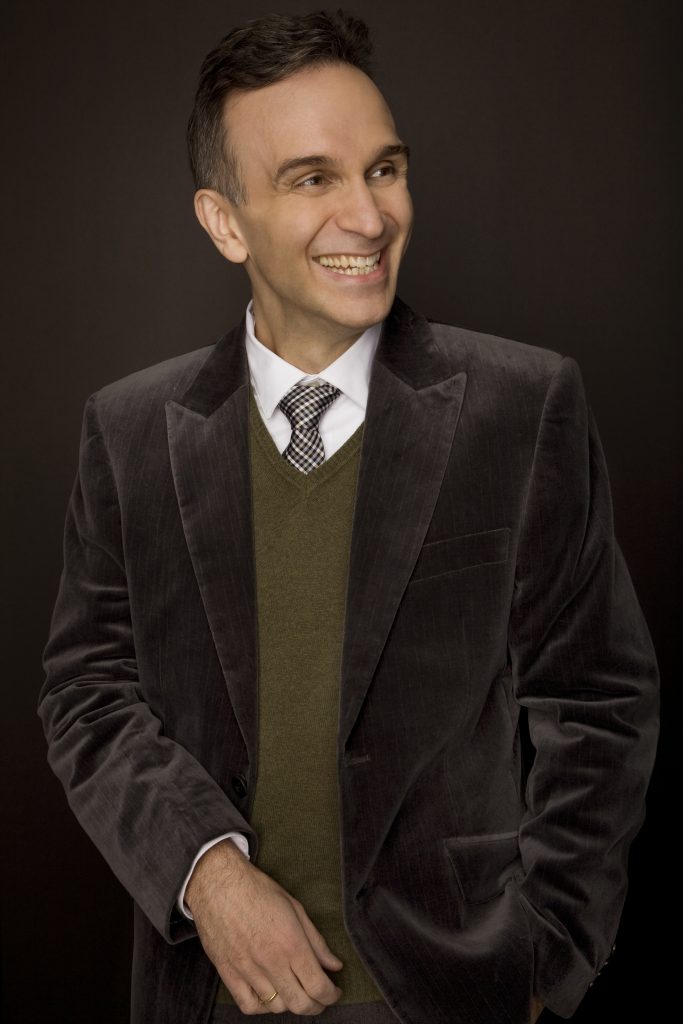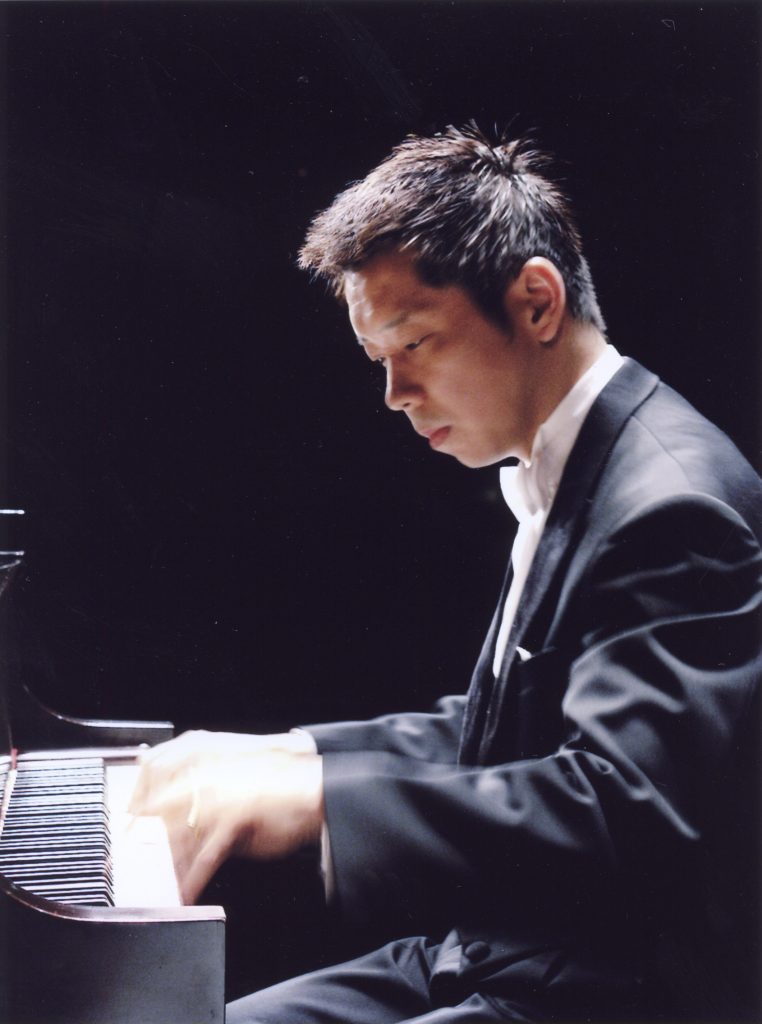Violinist Gil Shaham and Pianist Akira Eguchi Return to San Diego In Triumph
When it comes to enjoying occasions to hear violin superstar Gil Shaham perform, San Diego is indeed blessed. Between invitations from the La Jolla Music Society and the San Diego Symphony, he has played here seven times in the last seven years.

Gil Shaham [photo (c.) Luke Ratray]
However you resolve that conundrum, there is no doubt that they played the new hall with prowess equal to the virtuosity they deployed on works by Fritz Kreisler, Scott Wheeler, Avner Dorfman, and César Franck. Their duo recital was the fourth performance I have attended in Baum-Baker, and, thus far, Shaham and Eguchi have achieved the best dynamic proportions—in a variety of musical styles—to bring out the room’s significant acoustic virtues of immediacy, unparalleled warmth, and pellucid clarity.

Akira Eguchi (photo courtesy of the artist)
With robust, assertive flourishes at the opening of Fritz Kreisler’s “Praeludium and Allegro (In the Style of Pugnani)” Shaham staked his sonic claim on Baum-Baker, and the two became one for the evening. Kreisler’s dazzling showpiece, cannily written for his own instrument, is exactly the vehicle any competitive violinist would choose if violin-playing were an Olympic sport. Shaham tossed off its explosive, breathless phrases with consummate finesse and easily subdued its brilliant cadenza. This piece may be a chestnut—but it is no bauble.
With his audience easily in the palm of his hand, Shaham followed with a 2017 piece by the American composer Scott Wheeler “The Singing Turk” (Violin Sonata No. 2). The composer frequently has the violin and the piano developing quite disparate ideas suspended in transparent textures, eventually bringing them together with a vaguely quoted theme from another composer. His title alludes to a complicated program involving quotations of Turkish music in certain 18th and 19th-century European operas, a topic to delight musicologists and glaze over the eyes of typical concertgoers.
Nevertheless, in purely instrumental terms, Wheeler’s sonata elegantly structures idiomatic themes—sometimes identifiably tonal and sometimes not—for both piano and violin, replete with engaging contrasts, ending in a fiery movement of spirited moto perpetuo flash for the violin rushing over delicate piano ostinatos. Shaham and Eguchi adroitly traversed Wheeler’s daunting musical map with complete confidence.
In a recital Shaham and Eguchi played in San Diego’s Copley Symphony Hall in February of 2013, the duo performed Avner Dorman’s 2011 “Nigunim” (Sonata No. 3), a piece written for Shaham. Repeating this worthy composition of deeply evocative themes rooted in the modalities and rhythms of traditional Jewish music and other Middle Eastern cultures proved particularly rewarding in the warm, inviting acoustics of Baum-Baker.
Following intermission, Shaham offered J. S. Bach’s Partita No. 3 in E Major for Unaccompanied Violin, BWV 1006, a work he has played on previous San Diego recitals, including the 2013 program at Copley. It is easy to see his attraction to this work, with its brilliant opening Preludio and stylized dance movements cast in Bach’s inventive, demanding manner. Shaham’s Bach always invites a profound journey, and his approach walked a tightrope between the grand manner of traditional violin virtuosos and the opposing doctrines of today’s period performance practitioners.
Franck’s Violin Sonata in A Major arguably demands more heavy lifting from the piano than from the violin, and Eguchi demonstrated that he had plently of muscle and technique to spare for this almost symphonic chamber work. Eguchi coaxed Franck’s surging textures and majestic harmonic progressions from the concert grand in a way that filled the room gloriously without overshadowing in any way the soloist. He should leave notes in the green room for future Baum-Baker pianists. Shaham relished Franck’s dramatic declamation and probed his profound themes with unstinting command.
For their encore, the duo played William Bolcom’s clever, endearing “Graceful Ghost Rag,” the same encore they offered in 2013. It proved just as welcome on Thursday as it did then.
This program was presented by the La Jolla Music Society in the Conrad Prebys Performing Arts Center’s Baker-Baum Concert Hall on April 25, 2019. The Society’s Coming Home Festival continues at The Conrad through May 19, 2019.

Ken Herman, a classically trained pianist and organist, has covered music for the San Diego Union, the Los Angeles Times’ San Diego Edition, and for sandiego.com. He has won numerous awards, including first place for Live Performance and Opera Reviews in the 2017, the 2018, and the 2019 Excellence in Journalism Awards competition held by the San Diego Press Club. A Chicago native, he came to San Diego to pursue a graduate degree and stayed.Read more…
